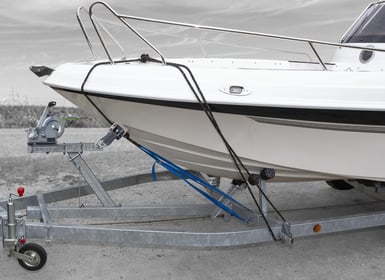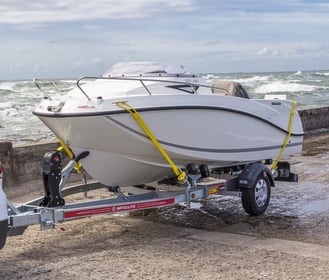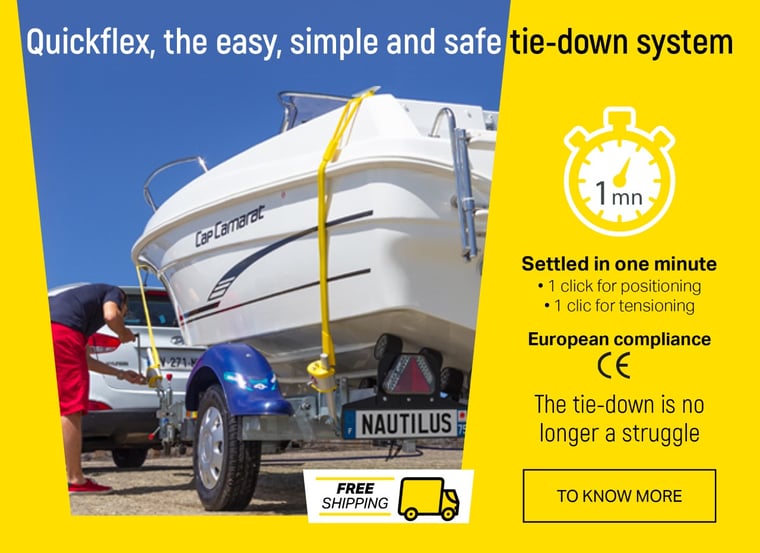As Laurent Rambla of Ander Nautic points out, ”the stowage is a crucial safety element when transporting a boat. Too many users neglect its quality. They use undersized, insufficient and sometimes poor quality straps despite our advices and recommendations.”
Yet, it is the motorist's responsibility to ensure the conformity of his stowage.


According to the European standard EN12195 1-5, three factors are important:
-
The type of stowage:a 4-point cross tie-down to completely immobilise the boat (3 points are enough for rigid boats of less than 1 ton or 1.6 tons for semi-rigid boats).
-
The tension force
-
The non-elasticity of the straps
In addition, the INRS describes in its brochure of 03/2013:
-
The legal obligations of users and professionals transporting heavy loads on a rolling vehicle,
-
The method of stowage by friction and straps (most often used for boats),
-
Simplified standard calculation methods (although still relatively complex).
Example of calculation communicated by the INRS (for a truck bed, i.e. a more stable configuration than that of a boat carrier):for a mass of 1500 kg, the IRNS recommends 5 straps of LC 5 tons for a muscular effort of tension of 50 kg (difficult to obtain with a strap lever).
These are professional "truck" type straps not available in DIY stores. The INRS recommends the disposal of straps that have been deformed, cut or knotted.
For more details, feel free to download the resistance calculation software of a stowage from the INRS.
In conclusion, before taking to the road, check that:
- Your straps are of sufficient quality, and without deformation,
- You have provided enough straps and securing points,
- Your stowage is well crossed,
- The tension force of the straps is sufficient (check regularly once on the road).
